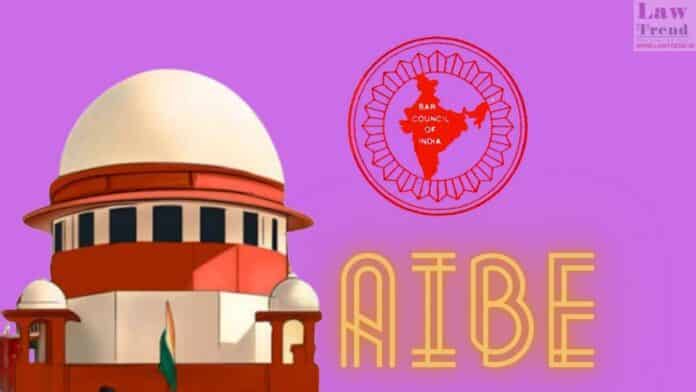In a significant Judgement, the Supreme Court on Friday ruled that the Bar Council of India has power under Advocates Act 1961 to prescribe All India Bar Examination for Advocates to practice in India.
On September 28th, 2022, a Constitution Bench comprising of Justices S.K. Kaul, Sanjiv Khanna, A.S. Oka, Vikram Nath, and J.K. Maheshwari, reserved its decision in the case reserved judgement in the challenge to the Bar Council of India’s All India Bar Examination (AIBE).
By this Judgment the Constitution Bench has overruled its earlier decision in V Sudeer vs Bar Council of India reported in (1999) 3 SCC 176, wherein the Supreme Court had ruled that no condition other than those mentioned in Section 24 of Advocates Act can be imposed upon a person who wish to practice law in India.

In April 2010, the Bar Council of India (BCI) launched the All India Bar Exam (AIBE) to raise the bar of the legal profession in India. The exam determines whether a candidate has a basic understanding of the law and is qualified to practise as an advocate.
The Bar Council of India issues a ‘Certificate of Practice’ to candidates who pass the examination, indicating their qualification as an advocate.
The All India Bar Council Rules, 2010 were introduced by the BCI in April 2010, making passing the AIBE and receiving a Certificate of Practice mandatory for practising law.
These rules were reinforced by the BCI’s 2014 and 2015 rules, which required advocates to write the AIBE and renew their Certificate every five years in order to receive certain benefits.
Following that, a number of previously enrolled and newly enrolled advocates challenged the Bar Council of India’s 2014 and 2015 Rules.
Case Detail:
Bar Council of India v. Bonnie Foi Law College & Ors. (Special Leave Petition (Civil) No. 22337 of 2008)







